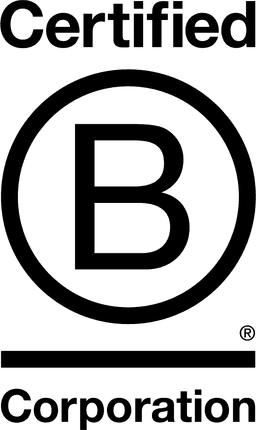

Posit

Massachusetts, United States
December 2019
Software publishing and SaaS platforms
Service with Minor Environmental Footprint
United States
Posits’s primary purpose is to create free and open-source software for data science, scientific research, and technical communication. This allows anyone with access to a computer to participate freely in a global economy that rewards data literacy; enhances the production and consumption of knowledge; and facilitates collaboration and reproducible research in science, education and industry. To reliably contribute to the deeper understanding and improvement of the world, data science tools must be sustainable over the long haul, which requires a stable, long-term source of financial investment. Today, millions of people download and use Posit open-source products in their daily lives while thousands of organizations and individuals, who have the need and ability to pay for their commercial products on premises or online, help them to sustain this work. Together, these products form a virtuous cycle. The adoption of open-source data science software in organizations creates demand for our commercial products, which enable teams to adopt open-source data science software at scale. The revenue from our commercial products, in turn, enables ongoing investment in the open-source software that benefits all users.
Overall B Impact Score
Governance 17.7
Governance evaluates a company's overall mission, engagement around its social/environmental impact, ethics, and transparency. This section also evaluates the ability of a company to protect their mission and formally consider stakeholders in decision making through their corporate structure (e.g. benefit corporation) or corporate governing documents.
What is this? A company with an Impact Business Model is intentionally designed to create a specific positive outcome for one of its stakeholders - such as workers, community, environment, or customers.
Workers 32.5
Workers evaluates a company’s contributions to its employees’ financial security, health & safety, wellness, career development, and engagement & satisfaction. In addition, this section recognizes business models designed to benefit workers, such as companies that are at least 40% owned by non-executive employees and those that have workforce development programs to support individuals with barriers to employment.
Community 15.4
Community evaluates a company’s engagement with and impact on the communities in which it operates, hires from, and sources from. Topics include diversity, equity & inclusion, economic impact, civic engagement, charitable giving, and supply chain management. In addition, this section recognizes business models that are designed to address specific community-oriented problems, such as poverty alleviation through fair trade sourcing or distribution via microenterprises, producer cooperative models, locally focused economic development, and formal charitable giving commitments.
Environment 4.4
Environment evaluates a company’s overall environmental management practices as well as its impact on the air, climate, water, land, and biodiversity. This includes the direct impact of a company’s operations and, when applicable its supply chain and distribution channels. This section also recognizes companies with environmentally innovative production processes and those that sell products or services that have a positive environmental impact. Some examples might include products and services that create renewable energy, reduce consumption or waste, conserve land or wildlife, provide less toxic alternatives to the market, or educate people about environmental problems.
Customers 22.4
Customers evaluates a company’s stewardship of its customers through the quality of its products and services, ethical marketing, data privacy and security, and feedback channels. In addition, this section recognizes products or services that are designed to address a particular social problem for or through its customers, such as health or educational products, arts & media products, serving underserved customers/clients, and services that improve the social impact of other businesses or organizations.
What is this? A company with an Impact Business Model is intentionally designed to create a specific positive outcome for one of its stakeholders - such as workers, community, environment, or customers.